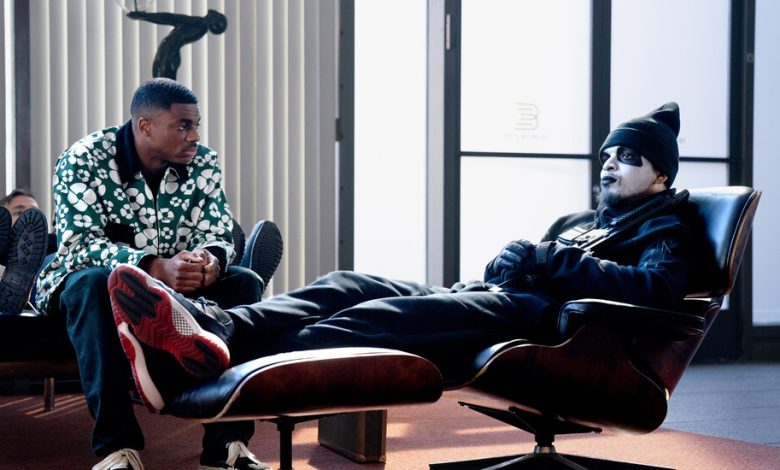Review: ‘The Vince Staples Show’ Is a Hip-Hop Head Trip

There have been enough offbeat comedies about rappers and hip-hop lately to make up their own genre — the shape-shifting surreality of “Atlanta,” the scatological farce of “Dave,” the social-media savvy of “Rap Sh!t” — not to mention a list of dramas and docu-series from “Empire” to “Wu-Tang: An American Saga.”
On Thursday, Netflix adds “The Vince Staples Show,” an impressionistic alt-comedy built around the deadpan sensibility of its star. It is mordantly funny and visually arresting, although at five brief episodes, it’s more of an EP than a magnum opus.
Staples, once affiliated with the alternative hip-hop collective Odd Future, is known not just for his music but for a self-aware sense of humor that’s made him a sharp presence on social media. In the series, whose executive producers include Staples and Kenya Barris (“black-ish”),he plays a version of himself, flexing his sardonic voice while playing with the sense of danger that informs many of his lyrics.
In the first episode, Vince is pulled over after making a U-turn in his home town of Long Beach, Calif. The experience is part nightmare (he’s locked up with a white man with Nazi tattoos and a behemoth with a reputation for knifework); part satire (when he picks up the communal phone, a voice says, “Hello, and welcome to jail!” followed by the sound of children cheering); part hallucination (for his meal, he’s handed a sandwich topped with a Draw Two Uno card).
Outside jail, Vince’s world is just as much of a comic dystopia. A bank visit turns into a combination heist flick and Jordan Peele horror story. On a trip to a water park, the loudspeaker announcements are cryptically menacing (“All children must be accompanied by adults of the same ethnic background”), and the cartoony park mascot glares at Vince with ill intent.
Unlike other recent hip-hop comedies, the rap-business part of “Vince Staples” stays largely offscreen. We don’t see Vince recording or performing, though he does run into the megastar Rick Ross. Instead, his fame is the backdrop and premise. It gets him recognized in lockup (an admiring guard quotes his song “Norf Norf” at him); it gets him an invitation to speak at his old school that goes bizarrely south; it gets him targeted by relatives looking for loans.
We are having trouble retrieving the article content.
Please enable JavaScript in your browser settings.
Thank you for your patience while we verify access. If you are in Reader mode please exit and log into your Times account, or subscribe for all of The Times.
Thank you for your patience while we verify access.
Already a subscriber? Log in.
Want all of The Times? Subscribe.



